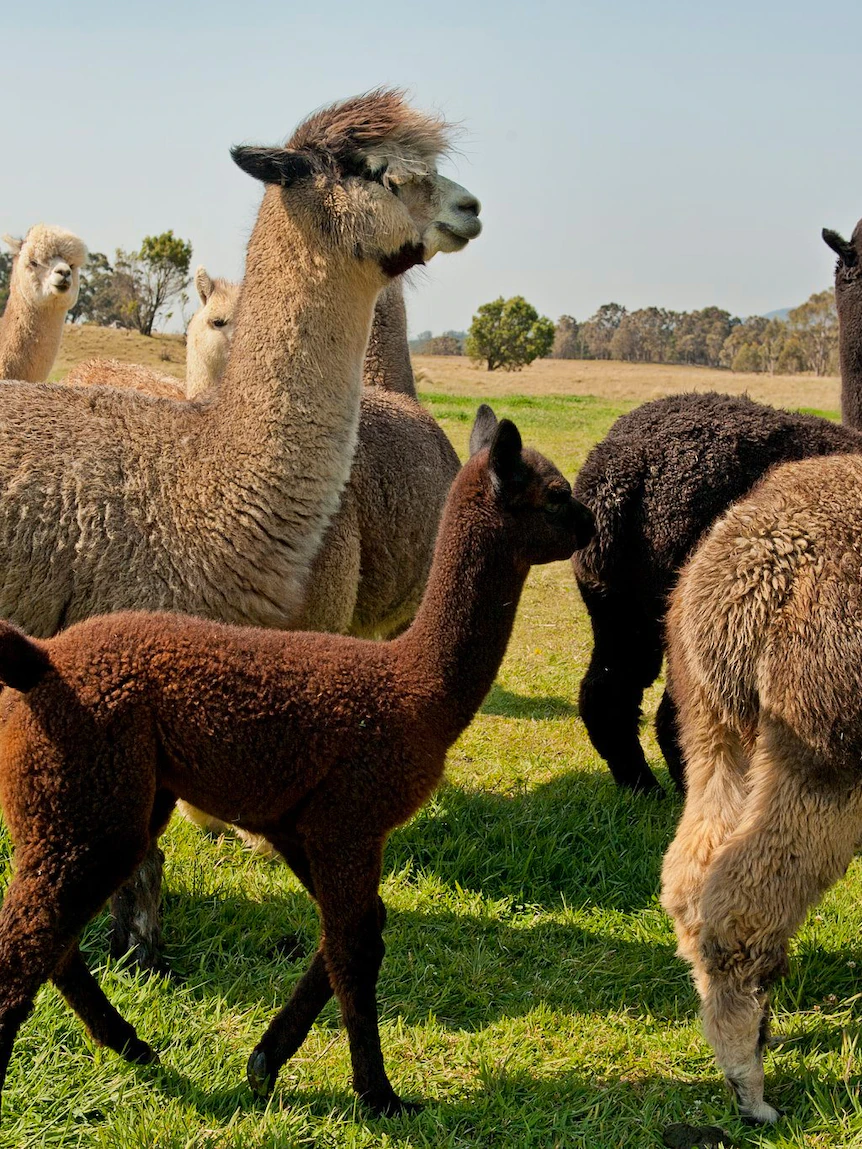People looking to purchase an alpaca are being warned that scammers are taking advantage of those hoping to buy one online.
Key points:
- Scammers are targeting people who are looking to buy an alpaca
- One victim lost $500 to a scam after putting a deposit down
- The Australian Alpaca Association is encouraging buyers to be diligent
The Australian Alpaca Association said it had come across scams, particularly on Facebook, that were leaving people red-faced and hundreds of dollars out of pocket.
Rita Soares, a breeder in Central Victoria and the association’s social media coordinator, said it was upsetting to see this happening in the industry.
“It’s really frustrating because there are wonderful people all over Australia who do great things with alpacas,” she said.
“It’s a shame there are people scamming others for quick money.”
Ms Soares said she came across a Facebook page claiming to sell alpacas that had many people following it.
“There were lots of comments of enquiries of people wanting to buy the alpacas … and lots and lots of people following the page,” she said.
“When I looked further, there were alpacas in snow that did not look like Australia.”
She said it was “suss” as the page had a “really wide range” of places it was supposedly selling the alpacas in from Victoria to Adelaide.
A man from Victoria contacted the association after so-called alpaca breeders asked him to put a deposit down before disappearing without a trace.
He said he lost $500 and did not have the full name, telephone number, or address of the scammers.
Later his bank found that the account that took his money came from Malaysia.
The Australian Alpaca Association has since alerted Facebook about the page and blocked it.
“From our side, there’s not much we can do when someone’s not a member of or breeder in our association, but we can educate the public,” Ms Soares said.
“We did a series of posts on Facebook, Instagram and Twitter giving the public some tips on what to look out for and how to recognise a scam.”
Ms Soares said that serious buyers needed to look out for a reputable breeder to avoid such problems.
“It’s with any livestock. A reputable breeder will be a part of an association. In Australia, the peak association for Alpacas is the Australian Alpaca Association,” she said.
She said the most important thing was to locate breeders who were registered in their area, and then visit the farm in person — especially if buying for the first time.
The man who was scammed did not wish to be identified but wanted to warn others.
“I feel so stupid as I did not do the basic simple things and go to reputable members of the Alpaca Association for advice,” he said.
“I trusted the messages I received from them on Facebook messenger and the photos I was sent.
“I should have realised that something was not right when they asked for a deposit before [I saw] the alpaca. They told me they lived in Tooradin, Victoria.”
“I was excited that I would possibly be the carer of a black alpaca, something I have wanted for nearly 12 months.”
Welfare care
Ms Soares said alpacas were becoming more popular but were originally bred for their fleece.
“All alpacas need to be shorn annually because they grow lots of fleece,” she said.
“Otherwise, they can develop skin diseases [or] they can overheat.”
Ms Soares advised against buying “breeding pairs”.
“Their reproduction is really unique. They always need to be in the herd as the same gender,” she said.
She also advised against buying baby alpacas, known as crias, and bottle-feeding them.
“Alpacas need to grow with other alpacas so they know how to learn.”
The Australian Alpaca Association encourages people interested in purchasing an alpaca to do their research, speak to registered breeders, jump on their website, or visit a local farm.
Posted , updated

